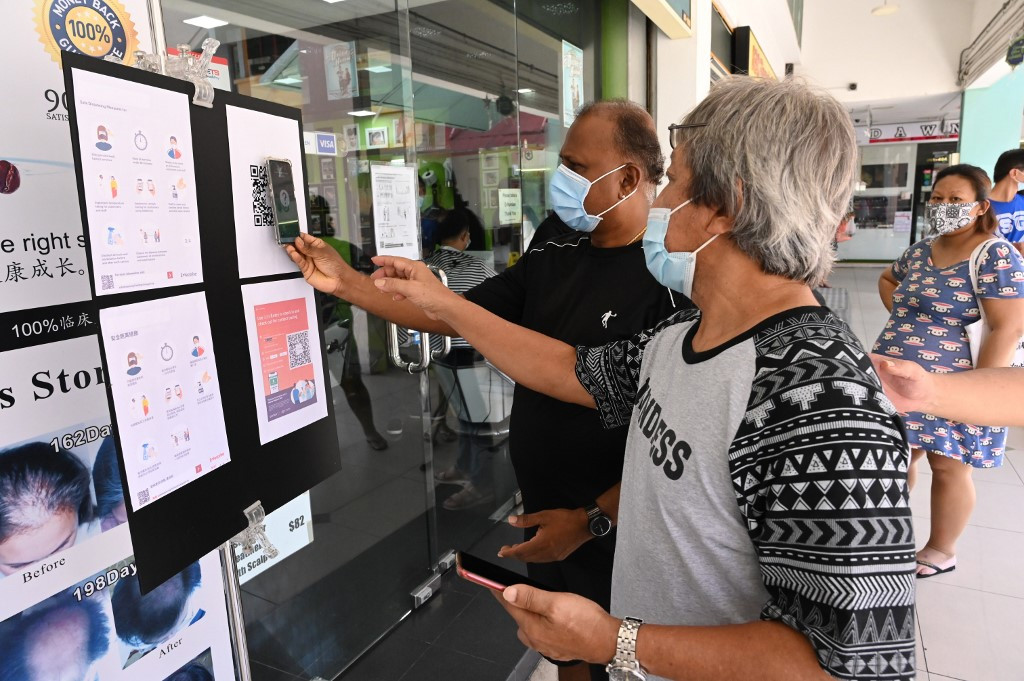Popular Reads
Top Results
Can't find what you're looking for?
View all search resultsPopular Reads
Top Results
Can't find what you're looking for?
View all search resultsS. Korea mandates QR codes to log customers after nightclub coronavirus outbreak
Change text size
Gift Premium Articles
to Anyone
 People wearing face masks as a prevention measure against the spread of the COVID-19 scan a QR code before entering a hair salon, after they reopened as restrictions to contain the outbreak were relaxed, in Singapore on May 12, 2020. South Korea is testing a new QR code system this week to log visitors at high-risk entertainment facilities, restaurants and churches in a bid to track coronavirus cases and prevent further spread of the disease. (AFP/ROSLAN RAHMAN )
People wearing face masks as a prevention measure against the spread of the COVID-19 scan a QR code before entering a hair salon, after they reopened as restrictions to contain the outbreak were relaxed, in Singapore on May 12, 2020. South Korea is testing a new QR code system this week to log visitors at high-risk entertainment facilities, restaurants and churches in a bid to track coronavirus cases and prevent further spread of the disease. (AFP/ROSLAN RAHMAN )
S
outh Korea is testing a new quick response (QR) code system this week to log visitors at high-risk entertainment facilities, restaurants and churches in a bid to track coronavirus cases and prevent further spread of the disease.
The decision to mandate QR codes to register visitors' identities came after authorities struggled to trace people who had visited a number of nightclubs and bars at the center of a virus outbreak last month after much of the information on handwritten visitor logs was found to be false or incomplete.
Starting June 10, visitors to nightclubs, bars, karaoke clubs, daytime discos, indoor gyms that hold group exercises, and indoor standing concert halls, will be required to use any of a number of commercially available apps to generate a one-time, personalized QR code that can be scanned at the door.
Local governments may also designate other high-risk facilities such as libraries, hospitals, restaurants or churches.
The person's information will be logged in a database kept by the Social Security Information Service for four weeks, before it is automatically deleted, according to South Korea's Ministry of Health and Welfare.
Ahead of the rollout of the new system, the ministry is testing the system at 17 facilities, including entertainment spots, churches, libraries, restaurants and a hospital.
Some local governments have already implemented similar QR requirements after the nightclub outbreak, which led to at least 270 cases and raised fears of a second wave of infections.
Seongdong-gu, a district in the capital city of Seoul, established QR code systems at 172 facilities, according to the district office.
"I think customers feel safer as personal information is managed under the control of a government system, not individually by us," said Cheon Min-woo, who manages an internet cafe in Seongdong-gu.
Shin No-ah, a 19-year-old university student who was visiting the internet cafe, said the system was convenient and it was worth the privacy trade-off.
"Regarding the privacy infringement issue, we just give our mobile phone number, so it is essential for government to trace coronavirus cases."









